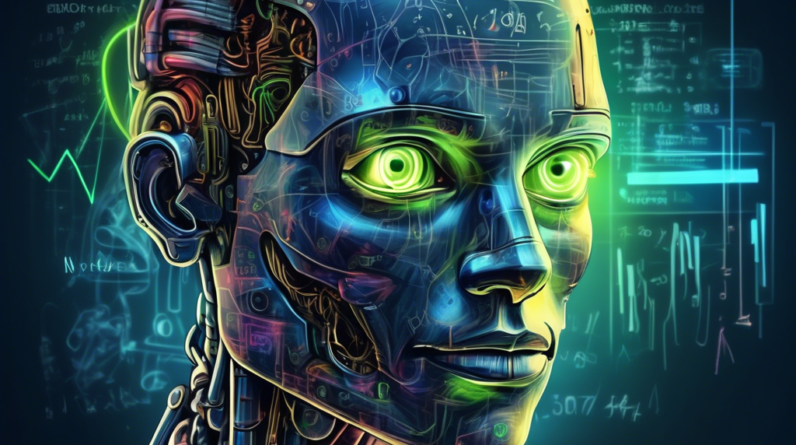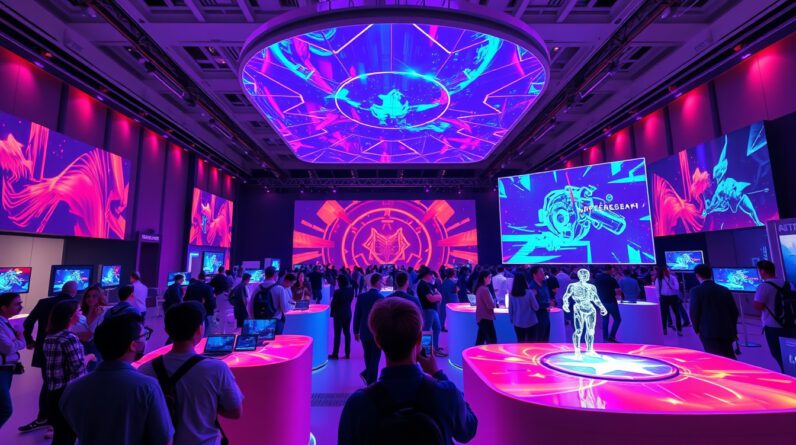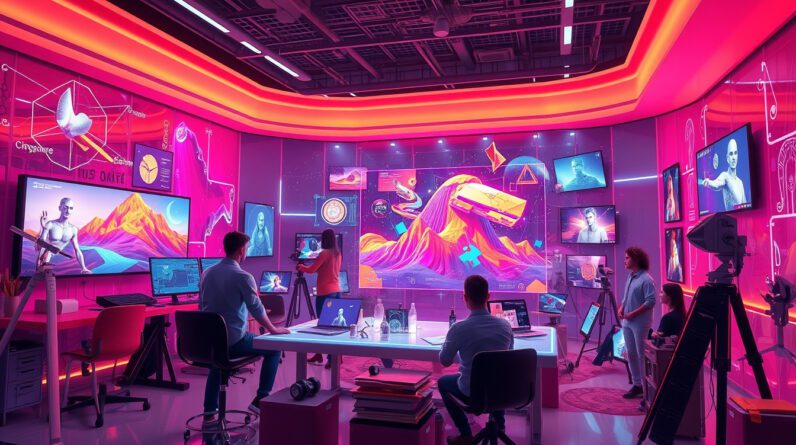
NVIDIA Research Steals the Show at SIGGRAPH with Groundbreaking Simulation and Generative AI Advancements
NVIDIA Research once again demonstrated its prowess in pushing the boundaries of computer graphics and artificial intelligence at SIGGRAPH 2023. The renowned research division unveiled a suite of groundbreaking technologies and research papers, showcasing significant leaps in simulation, generative AI, and neural graphics. These innovations promise to revolutionize content creation, digital twin development, and our understanding of complex systems.
Redefining Realism and Speed in Simulation with Neural Physics and Inverse Rendering
A highlight of NVIDIA’s presentation was the remarkable progress in neural physics and inverse rendering, techniques poised to redefine realism and accelerate simulations significantly. Imagine simulating complex phenomena like fluid dynamics with unparalleled accuracy or reconstructing real-world environments with astonishing fidelity—these advancements make such feats increasingly attainable.
Researchers at NVIDIA have harnessed the power of neural networks to develop physics-ML models capable of learning and replicating the intricate behavior of physical systems. These models, trained on massive datasets, can simulate scenarios like smoke plumes or water ripples with a level of detail and realism previously deemed computationally prohibitive.
Inverse rendering, another game-changer, enables the extraction of 3D scene information directly from 2D images. By training neural networks to understand the relationship between lighting, materials, and geometry in images, NVIDIA researchers have made significant strides in reconstructing real-world environments with remarkable accuracy. This technology has far-reaching implications for applications like virtual reality, augmented reality, and robotics, where realistic and detailed 3D models are paramount.
Unleashing the Creative Power of Generative AI for Content Creation
Generative AI, a field focused on creating new content using AI algorithms, took center stage at SIGGRAPH, and NVIDIA’s contributions were nothing short of impressive. The research showcased innovative applications of generative AI, empowering artists, designers, and developers with tools that push creative boundaries and streamline content creation pipelines.
Imagine effortlessly generating high-quality 3D models from simple text prompts or transforming rough sketches into photorealistic masterpieces. NVIDIA’s generative AI models are making these feats a reality. By training on vast datasets of images, text, and 3D models, these models have learned to synthesize novel content that adheres to the desired artistic style and specifications. This technology promises to democratize content creation, allowing even those without extensive technical expertise to bring their visions to life.
Redefining Storytelling and Virtual Experiences with Neural Graphics and Animation
NVIDIA’s advancements in neural graphics and animation are set to revolutionize storytelling and virtual experiences. Imagine creating lifelike and expressive digital characters with ease or generating entire virtual worlds with unprecedented detail and realism—these innovations are making such feats increasingly achievable.
Researchers at NVIDIA have developed cutting-edge techniques for facial animation and character generation. Using neural networks trained on vast datasets of human expressions and movements, these models can generate highly realistic and emotionally nuanced facial animations. This technology has the potential to significantly enhance the realism and emotional impact of animated films, video games, and virtual reality experiences.
Furthermore, NVIDIA’s research in neural rendering and scene generation is transforming how we create virtual environments. By leveraging the power of neural networks, researchers can now generate incredibly detailed and realistic 3D scenes from simple inputs, such as text prompts or rough sketches. This technology has enormous potential for applications like architectural visualization, virtual tourism, and training simulations, enabling the creation of immersive and engaging virtual experiences with unprecedented ease and fidelity.
NVIDIA’s Research: A Catalyst for Innovation Across Industries
The groundbreaking research presented by NVIDIA at SIGGRAPH 2023 represents a significant leap forward in computer graphics, artificial intelligence, and their convergence. These advancements are poised to have a profound impact across numerous industries, revolutionizing content creation, simulation, and our interaction with the digital world.
The transformative potential of these technologies extends far beyond entertainment and media. In healthcare, for instance, NVIDIA’s advancements in simulation and generative AI can accelerate drug discovery, enable personalized medicine, and facilitate the development of surgical robots with enhanced precision and safety.
In manufacturing, these technologies can optimize production processes, improve product design, and enable the creation of highly realistic digital twins for predictive maintenance and performance optimization. The ability to simulate complex physical phenomena with unparalleled accuracy opens up new possibilities for innovation and efficiency across various sectors.
NVIDIA’s research in simulation and generative AI is not merely about pushing technological boundaries; it’s about empowering creators, innovators, and researchers across industries with tools that amplify human ingenuity. As these technologies continue to evolve, we can expect to witness a new era of creativity, scientific discovery, and technological advancement, fundamentally reshaping how we interact with and understand the world around us.
A Glimpse into the Future of Computer Graphics and AI
NVIDIA’s presence at SIGGRAPH 2023 offered a glimpse into the future of computer graphics and artificial intelligence, a future where the line between the real and the virtual becomes increasingly blurred. The research presented underscores NVIDIA’s commitment to pushing the boundaries of what’s possible, driving innovation, and empowering creators with the tools to shape the future of visual computing.
As these technologies mature and become more accessible, we can anticipate a surge in creativity and innovation across various fields. Artists, designers, scientists, and engineers will have access to unprecedented tools and capabilities, enabling them to bring their boldest visions to life. The convergence of computer graphics and artificial intelligence, spearheaded by pioneers like NVIDIA Research, promises a future filled with limitless possibilities, and we are only beginning to scratch the surface of its potential.




